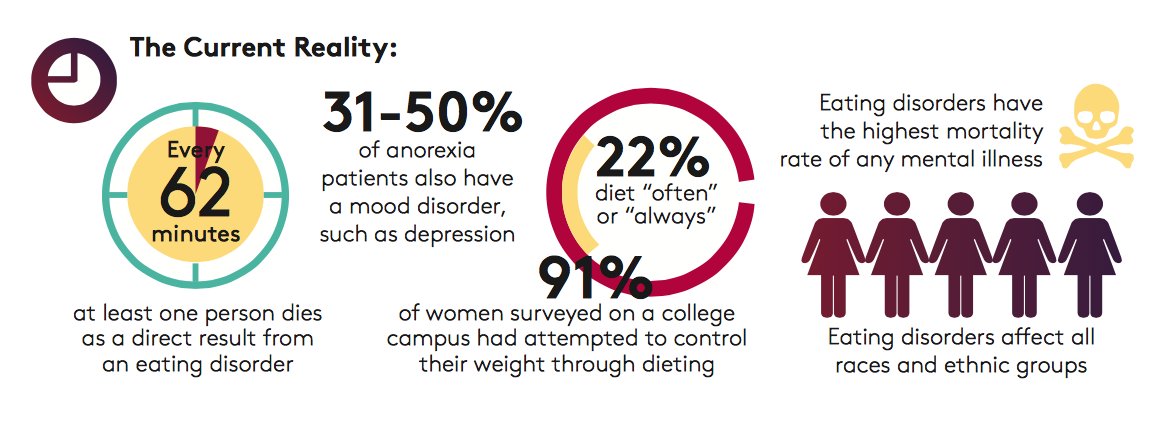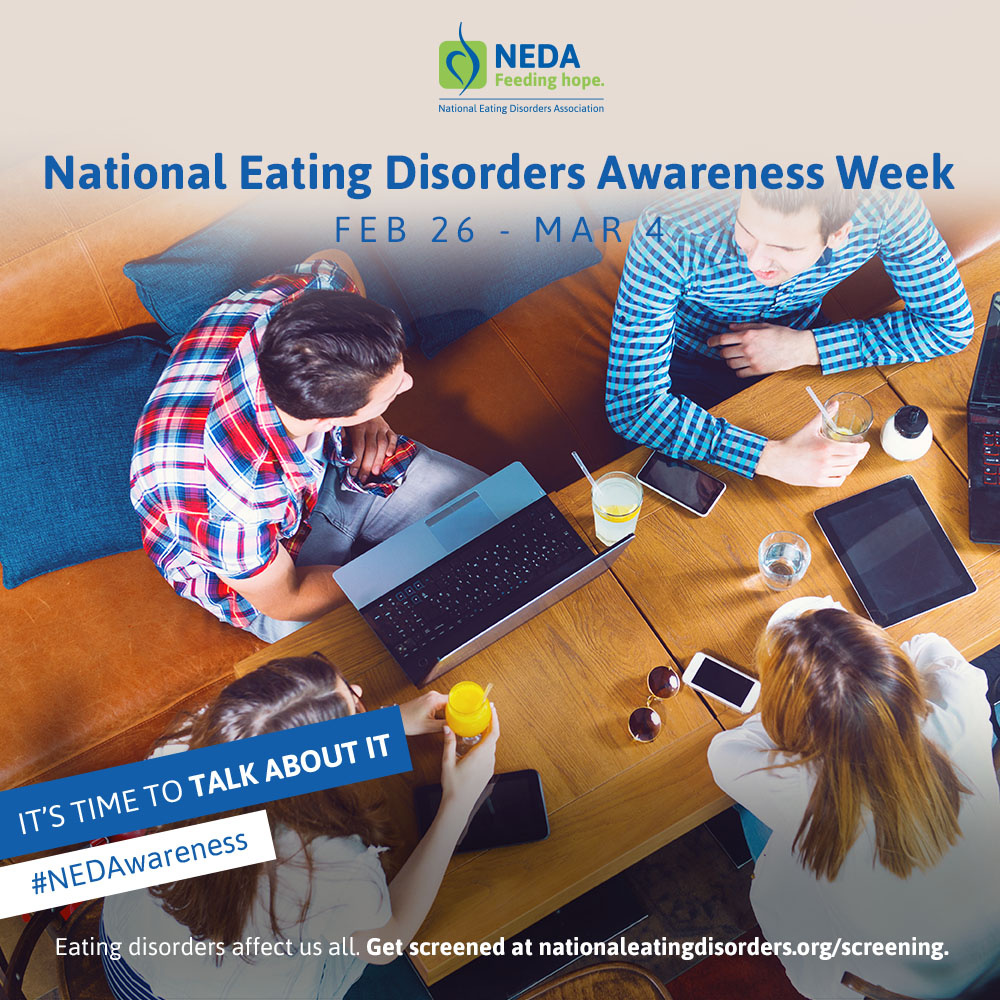“What you get the patient to tell you
is worth much more than what you tell the patient.”
Counseling—especially through asking the right questions and practicing therapeutic listening skills—can save the life of someone struggling with an eating disorder.
Daryl Smith-Oswald, RD, LD, LLC, tells us in Today’s Dietitian article “Insights From Eating Disorder Counseling,” about a client who described her relationship with her “best friend,” cookies and ice cream.

The girl said she got excited about her best friend every night, but felt disgusted after each binge.
The counselor asked the client what she would do if a human friend made her feel that way. “I would probably dump her!” the client responded.
What a wonderful opportunity to discuss changes after such a power-packed statement.
February 26-March 4 is Eating Disorders Awareness Week, Family Service of Roanoke Valley wants you to know the connection between mental health and eating disorders.

A person suffering from bulimia, binge eating disorder, or anorexia may be suffering from depression or another mental illness.
Those struggling with an eating disorder can find the support they need.At the heart of treatment and recovery is the person’s support system—whether it’s family, friends, a counselor, a dietitian, or a combination as unique as each individual’s needs.
In the Today’s Dietitian article, five dietitians discuss one major life lesson each they learned working with clients who have eating disorders.
Each “lesson learned” provides a new angle for how to work with a person suffering from an eating disorder.
Check out the original article and let us know what you think with a comment below!

